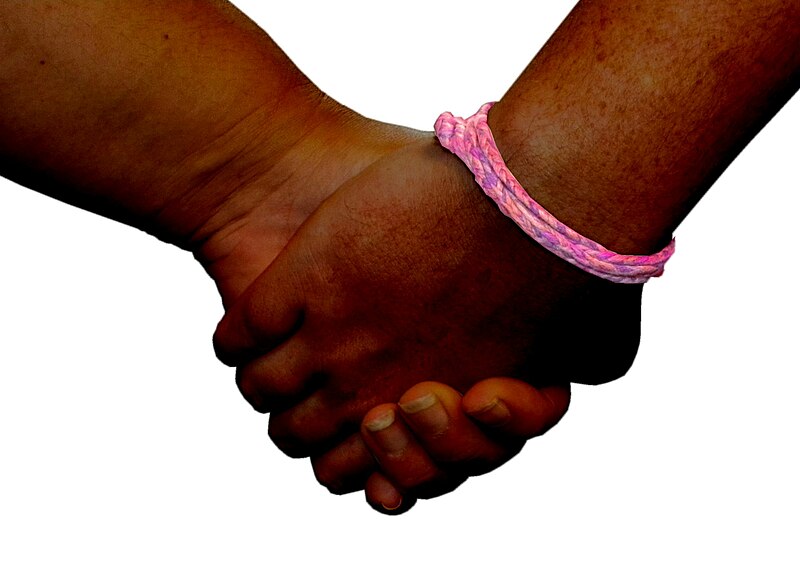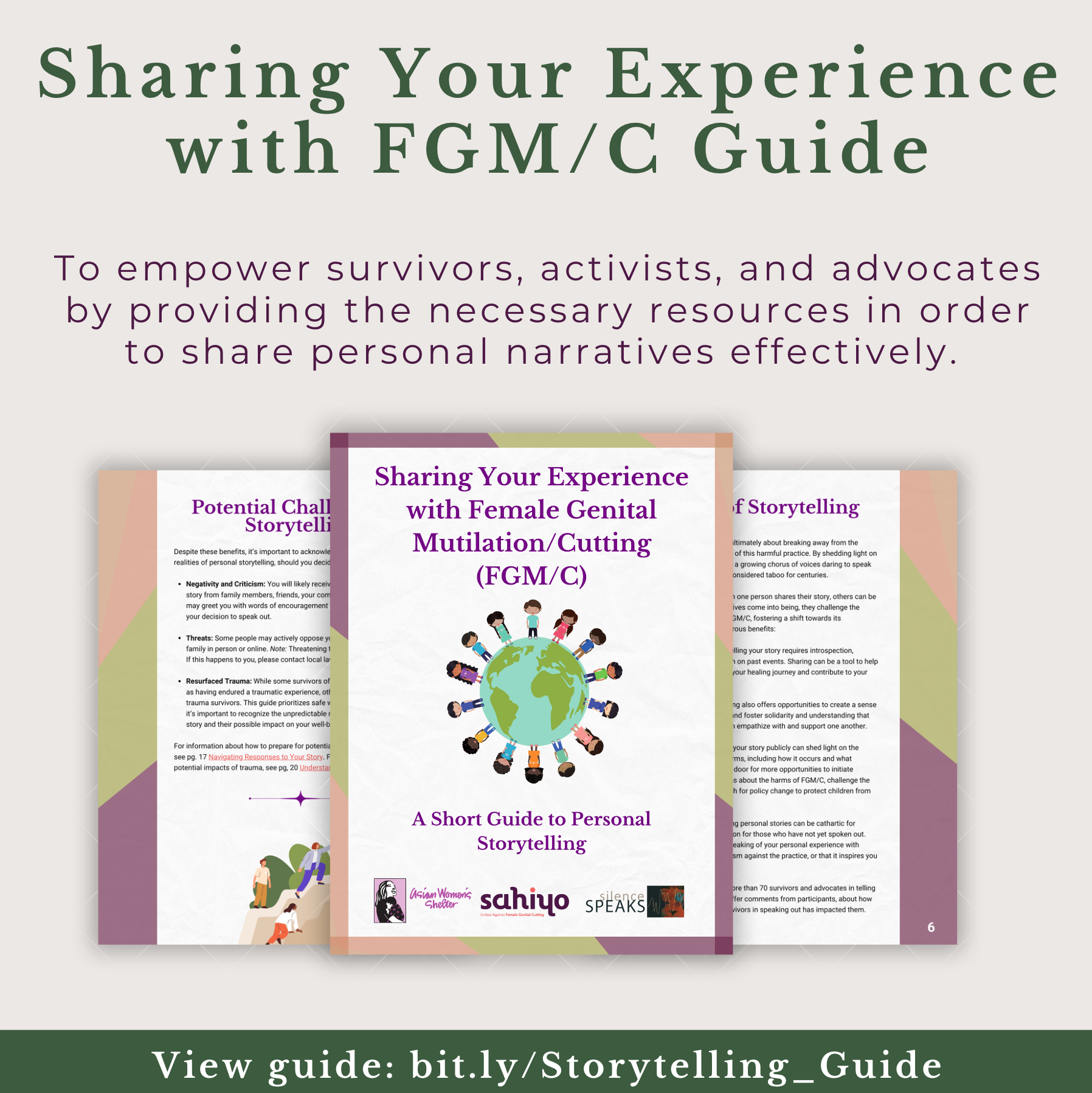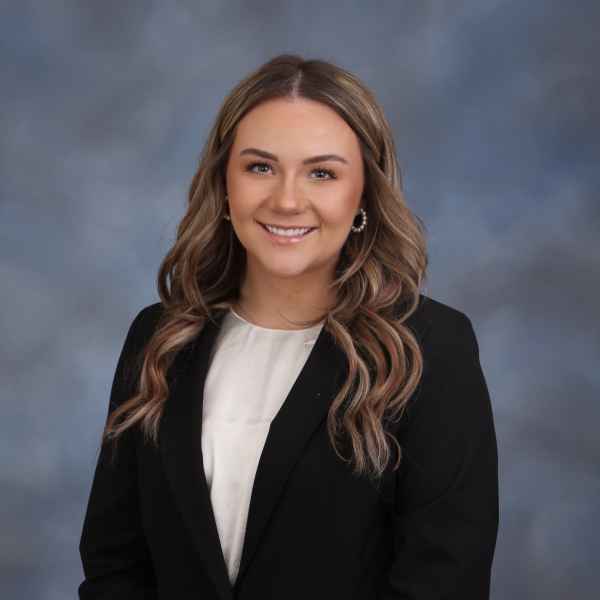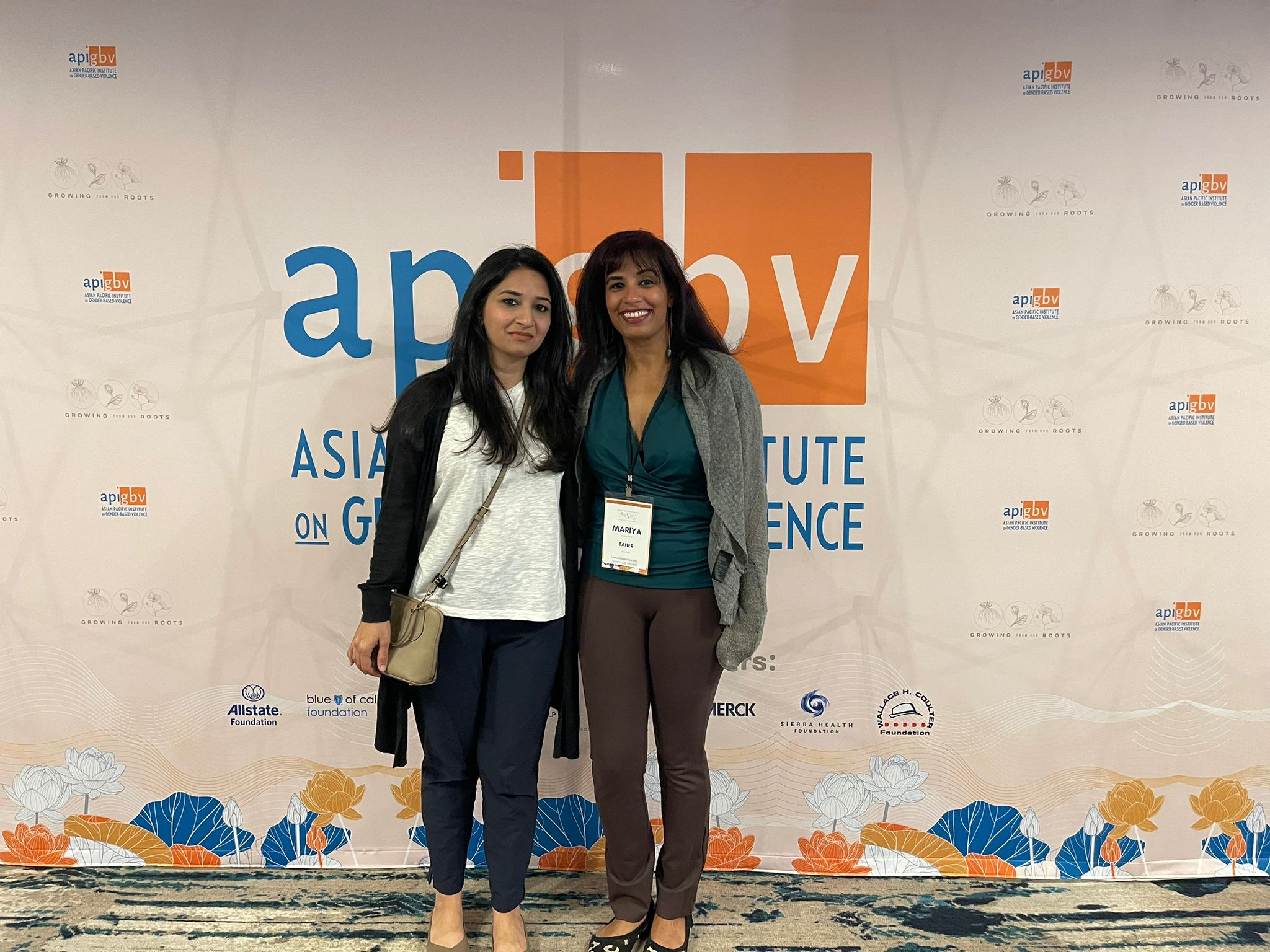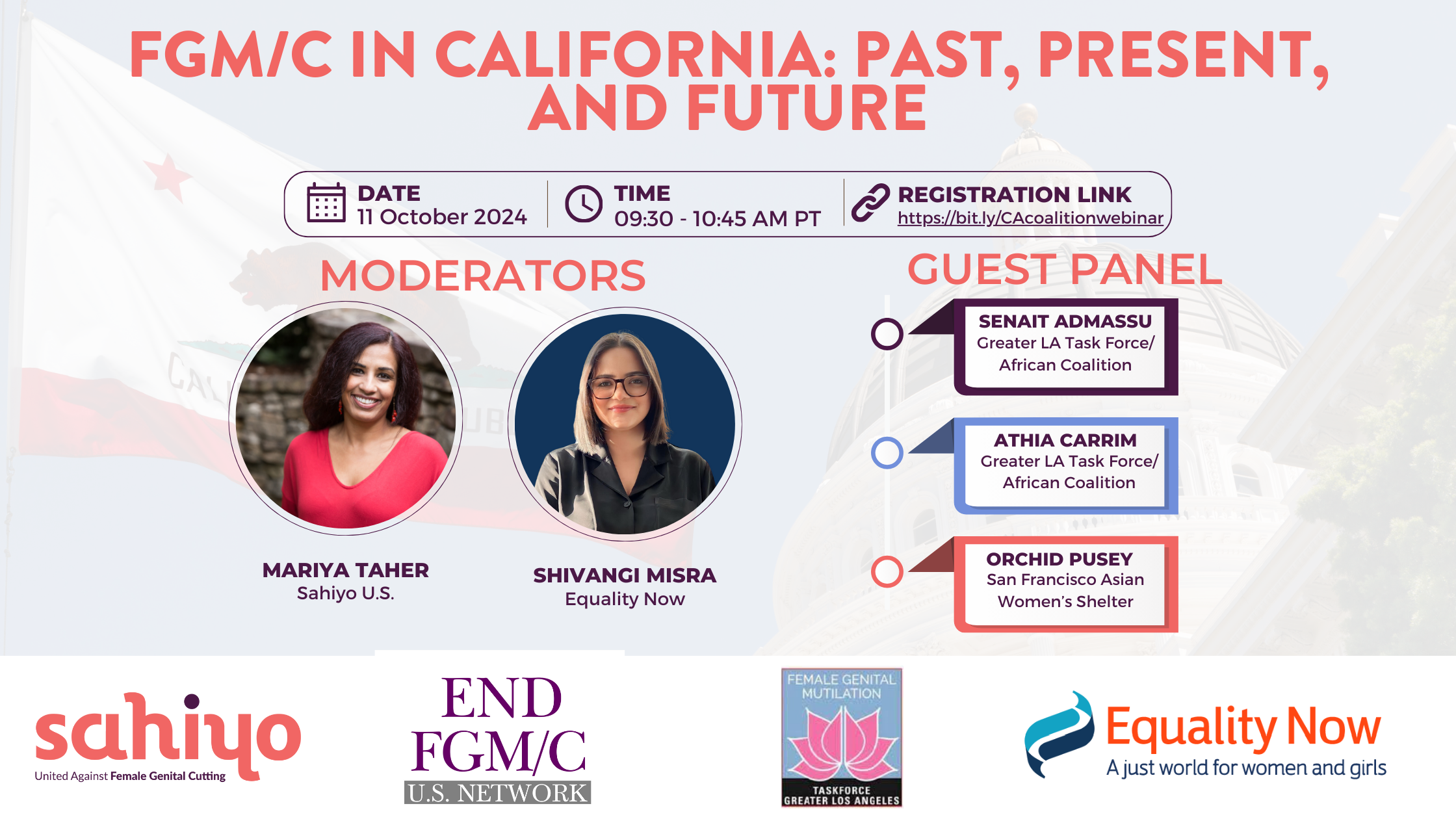By: Sunera Sadicali
Trigger warning: This article contains graphic descriptions of female genital cutting (FGC).
Khatna (or FGC) is much more than a physical wound. It has stayed quiet in my mind. I was not conscious of the impact of FGC on me and had dismissed it with all kinds of justifications. My therapist uses eye movement desensitization and reprocessing (EMDR) to help me process the trauma, and we decided to address this episode of my life that “I cared little about.”
EMDR is an evidence-based trauma therapy that uses bilateral brain stimulation to process traumatic experiences. In a simple way, it helps the person to make sense of and resignify the trauma, resulting in a more adaptive and coherent narrative of the past experience and their life.
In a nutshell, this is how it is performed:
1. First, the therapist helps the patient identify the traumatic memory they want to heal from.
2. Through sounds, taps, or eye movements, the therapist guides the patient through processing the memory as the patient focuses on it.
3. The therapist and patient repeatedly do this until the memory is no longer disturbing.
With EMDR I go back in time; my therapist asks me, “Where are you? What do you feel in your body?”
I visualize the waiting room, the sliding doors, and my sister on my left side. She is small, and she is as scared as I am because nobody explained to us what was going to happen. Our cousin was taken, and suddenly we heard a loud scream.
“I feel in my body the fear of the pain, of the unknown. I feel fear in my whole body. I know that whatever is happening there, I am the next one.”
My eye movement continues from one side to another. I feel safe with my therapist, I flow, I am in my body.
Next, I am laid down on that gurney. The room is half dark, my aunt is on my right side, and my mother is on my left. In front of me, there is a woman, a doctor with a white coat.
“I feel the fear in my body again.”
They grab me from my legs, I am in a lithotomy position, and they hold me down with force. I can’t see my pelvis, I can't see what is going to happen, nobody is telling me. There is no explanation, no asking consent, no describing the purpose of the act.
“I feel the pressure of my legs, and suddenly, a sharp pain like an electric shock coming from my genitals.”
I cry all along in fear and pain. She tells me it is a little worm that needs to be cut. That's all. My eye movement continues from one side to another.
“I go back to the pain, to the fear.”
There is a silence between the act and the worm. There is a silence that has never ceased to exist, nobody told you before the worm, nor after the pain. There is silence between me and my sisters, silence between my mother, and between my aunty and myself. We never talked about the act itself. How it was done.
“Why?” I believed it was not a big deal. Não era para tanto. “You don't have to complain because it was a very small cut, look how they do it to African women.”
Until today, I had not understood the seriousness of what had happened to me. The living body sensations it had caused. How it was carried out, and executed as the norm. The norm is that you are not allowed to complain.
Entering my body through EMDR, feeling the moment of Khatna again, before and after, allowed me to understand the beliefs that were generated from this act. The belief is that whatever happened to me is “not so important,” because it was not seen as important then. Traumatic experiences generate wrongful beliefs about ourselves. The belief that you have no right to complain. That it was for your own good, you were lucky enough that a doctor performed it, that you felt little pain. These are ways to cover up violence. Silence, lies, force, violence, continuing to perpetuate and defend a crime.
Since it was implemented, EMDR has been recognized as evidence-based psychotherapy by the National Registry of Evidence-based Programs and Practices (NREPP) and in 2012, the World Health Organization (WHO) recommended the use of EMDR in adults and children with post-traumatic stress syndrome (PTSD).
The brain has the intrinsic capacity to heal itself from disturbing events and experiences, by forming different pathways. If this is not achieved, for example, because of the lack of emotional support in childhood to help integrate these experiences, or validation, reparation, or acknowledgment from the external world, parents, or attachment figures, the traumatic memories will be blocked and retained as an implicit memory...buried inside the mind without having permission to come out. It then becomes a wound that keeps inflicting damage, in our unconsciousness. This creates unhealthy beliefs about ourselves, especially as a child. Children need to protect their relationship with their parents, and their family, to keep the attachment and love alive; they will unconsciously excuse their parents, and if it's needed allow wrong beliefs about themselves to justify what has happened to them.
EMDR, with its bilateral stimulation, helps me to connect and restore the balance in the systems that process traumatic experiences. It is a bottom-up therapy that installs positive information on various levels: the body, emotions, sensations, and belief systems.
I am currently receiving EMDR therapy, and I was recommended this modality — along with psychotherapy — to promote healing in general, especially from FGC as it happened in childhood and is related to sexuality and patriarchal mandates. EMDR works at a body level, and works on the memories of the body sensations, allowing the non-adaptive beliefs to emerge and to be replaced by new more positive, and resilient ones.
Related links:
- Learn more about Asian Women's Shelter support line for survivors of FGM/C in the United States
- Check out Sahiyo's list of resources for survivors
- Dear Maasi: Where do I begin with psychotherapy after undergoing khatna?
Sources:
- What is EMDR-Female Genital Trauma: Guidelines for working therapeutically with survivors of Female genital Mutilation
- SEMPYP (Sociedad Española de Medicina Psicosomática y Psicoterapia)
- Spanish Society of Psychosomatic Medicine and Psychotherapy

